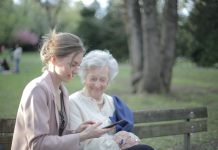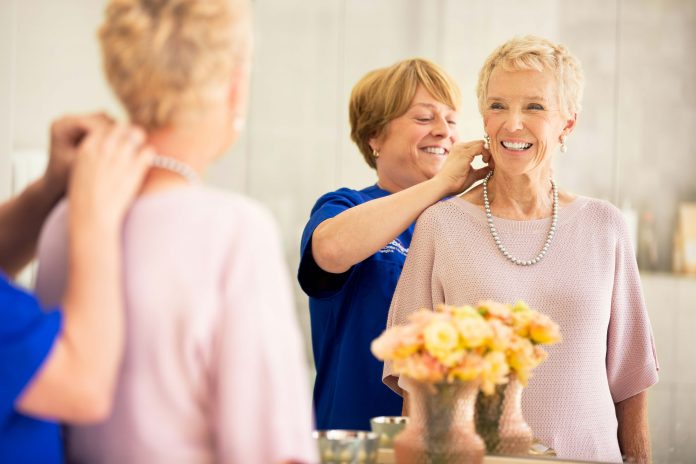Although the holiday season is typically a time of celebration and joy, this time of year can create a sense of nostalgia and produce melancholy amongst the senior population. Older adults may also have an acute awareness of their aloneness, as the losses of the past year come into full view. The previous death of a spouse, family member, and friends can hit particularly hard during the holiday season. Health problems that hinder activity or a recent move to a residential care setting also can change the very nature of a holiday celebration. Coupled with the reduction in overall daylight/sunlight due to the change of seasons, these changes can make the holiday blues a common occurrence for older adults.
The holidays are a time of year when many families visit their aging loved ones, often seeing them face-to-face for the first time in months. That’s why experts advise families to carefully watch for signs of possible depression or medical issues during holiday visits, be prepared with an arsenal of spirit-lifting activities and develop a plan of action before heading home. Family visits are a prime opportunity to not only observe for warning signs, but also provide much-needed companionship, mental stimulation, and general uplifting activities. In many cases, these visits can be lifesaving.
According to the Centers for Disease Control (CDC), 15 out of every 100 adults over the age of 65 are affected by depression.
Family members should look for the following signs when visiting their loved ones:
- Physical Signs – Take note of changes in sleeping and eating habits, including reduced appetite and difficulty sleeping. Accidents around the home, including dizziness or falling, could also indicate a physical condition or side effects of improperly mixing medications/taking the wrong doses.
- Appearance – Not shaving, not doing hair or makeup and neglected hygiene can signal an inability to care for themselves on their own, or a loss of interest in appearance. Either may indicate depression or a wide range of undiagnosed conditions that require professional attention.
- Emotional Signs – Seniors are especially susceptible to feelings of isolation and depression because of health, financial issues, or the loss of a spouse or other loved ones, especially during the holiday season. As families gather, pay close attention to see if your aging loved one seems disinterested in group conversations and appears dazed or lackluster.
- Environmental Signs – Look for an abnormally messy or cluttered home, piles of laundry or unpaid bills, or rotting food in the refrigerator. Any of these things could be a sign that the older adult may be depressed, disinterested, or no longer be able to perform household tasks on their own, requiring an outside caregiver to help.
Older adults benefit from “visits of value” during the holidays that could include conducting meaningful activities with aging loved ones, such as taking them to church or synagogue, attending a holiday performance (play or movie), helping them shop for gifts online or in stores if they are physically capable. Writing out holiday cards together, decorating the tree, baking a traditional family cookie recipe together, or watch a holiday movie classic together will lift their spirits and create beautiful lasting memories. Even listening to their favorite music together – music can be very powerful for the spirit.
Additionally, even though it can be challenging over the holidays, maintaining good health habits is important: eating balanced meals and limiting sweets, avoiding excessive alcohol consumption, getting some physical activity daily, and obtaining restful sleep 6-8 hours/night is advised.
Lastly, if you find yourself or your loved one struggling with the holidays, it might be time to consider getting professional help including therapy or counseling, in-home care services and the like to beat the holiday blues.
























